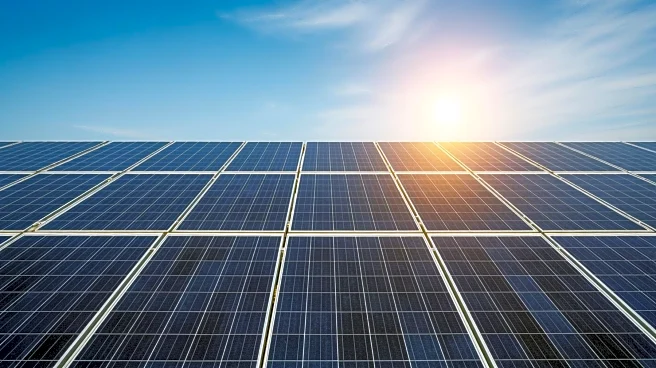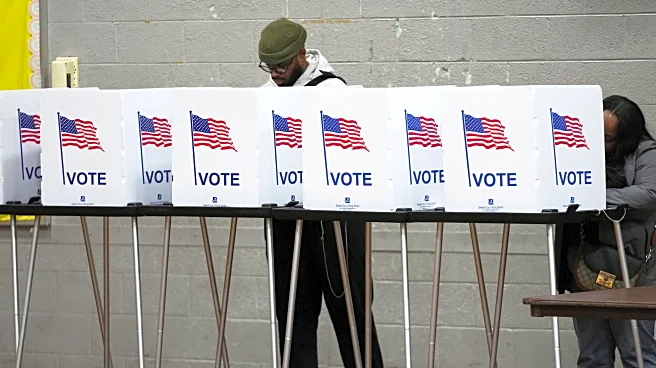What's Happening?
Emmvee Photovoltaic Power, an Indian solar panel manufacturer, is planning a significant expansion of its manufacturing capacity, investing approximately $625.75 million. The company aims to increase its module
capacity from 7.8 gigawatts to 16.3 gigawatts by 2028 and expand its cell manufacturing from 2.94 gigawatts to 8.94 gigawatts. This expansion is part of India's broader goal to achieve 500 gigawatts of non-fossil fuel capacity by 2030. However, Emmvee faces challenges due to U.S. tariffs of up to 50% on solar panel shipments from India, along with potential anti-dumping duties. These tariffs are expected to pressure Indian module makers, impacting their export opportunities.
Why It's Important?
The expansion of Emmvee Photovoltaic Power is crucial for India's renewable energy goals, but U.S. tariffs pose a significant challenge. These tariffs could limit the company's ability to export to the U.S., affecting its revenue and growth potential. The situation highlights the complexities of international trade policies and their impact on the renewable energy sector. For the U.S., these tariffs may lead to higher costs for solar panels, potentially slowing down the adoption of solar energy. The development underscores the need for strategic trade negotiations to balance domestic industry protection with global environmental goals.
What's Next?
Emmvee plans to open its IPO on November 11, aiming to use the proceeds to pay off long-term debt. The company has secured a loan from the Indian Renewable Energy Development Agency to fund its expansion. As the U.S. tariffs continue to impact Indian solar panel exports, Emmvee may need to focus more on the domestic market or explore alternative international markets. The situation may prompt discussions between India and the U.S. regarding trade policies and their implications for renewable energy collaboration.
Beyond the Headlines
The U.S. tariffs on Indian solar panels reflect broader geopolitical tensions and trade disputes that can affect global efforts to combat climate change. The reliance on tariffs as a trade tool may lead to unintended consequences, such as slowing down the transition to clean energy. This situation highlights the importance of international cooperation in addressing climate change and the need for policies that support rather than hinder renewable energy development.










